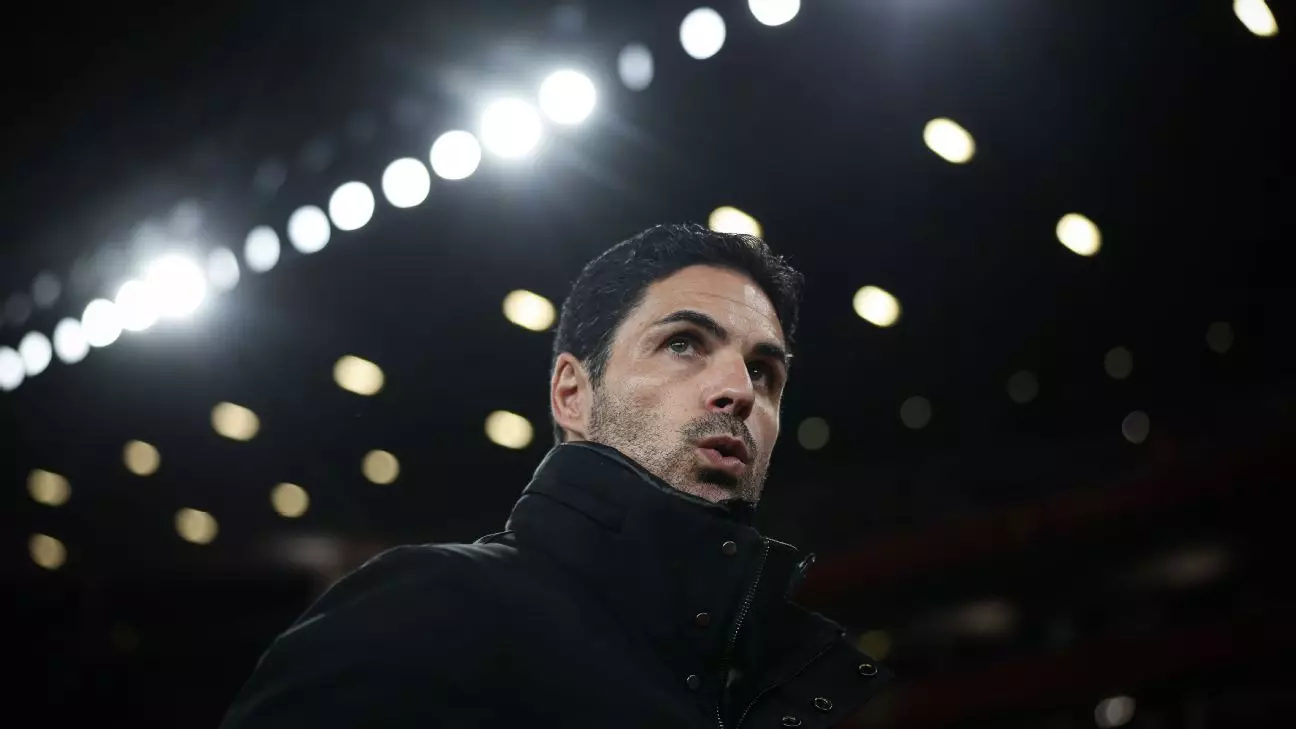Arsenal’s situation heading into their pivotal match against Liverpool is a test of both mental toughness and depth, as the club navigates a growing injury crisis. Manager Mikel Arteta has made it clear that the team will not succumb to self-pity, a sentiment that reflects a broader philosophy of resilience and adaptability that has characterized his tenure thus far. The Gunners face a considerable test; key players such as William Saliba and Bukayo Saka will be absent, leading to questions about how the team will adjust on the field.
The latest injuries present a stark reality for Arsenal fans and players alike. With Saliba serving a suspension and Saka sidelined due to a hamstring injury, the squad’s depth will be immediately summoned to counter these setbacks. Additionally, injuries to Riccardo Calafiori, Jurriën Timber, Martin Ødegaard, and Takehiro Tomiyasu leave Arteta with significant gaps in his tactical plans. As the manager acknowledged in a press conference, uncertainty looms over his starting lineup, emphasizing the variability that injuries introduce, “Until tomorrow, no [I don’t know my team].”
Such challenges in player availability push a coaching staff to creatively rethink their strategies. The necessity to plan for “what if” scenarios means that Arteta and his team must exhibit not only tactical ingenuity but also flexibility in execution. This homegrown approach allows them to utilize varying tactical frameworks depending on who is available, transforming potential liabilities into opportunities for other players to step up.
Arteta’s dismissal of self-pity reveals a philosophy rooted in optimism and proactive thinking. His statement, “We don’t feel sorry for ourselves – face it,” highlights a collective attitude aimed at maintaining focus and determination even when faced with significant hurdles. This perspective is pivotal for any competitive sports team, as it fosters a culture of readiness and resilience.
One might wonder how strategies can be maintained when fixtures increase in difficulty, but Arteta’s assertion about the team’s belief in their capabilities adds a layer of psychological strength. Confidence in their collective ability to compete and challenge opponents is crucial, especially against formidable opponents like Liverpool, who have begun their season with impressive momentum under new management.
In mitigating injuries, Arteta’s willingness to tap into the youth ranks signifies his commitment to developing young talent. The mention of Jakub Kiwior, Oleksandr Zinchenko, and promising academy players like Myles Lewis-Skelly and Ethan Nwaneri speaks to a crucial dimension of the club’s strategy. By promoting youth, Arteta not only provides opportunities for less-experienced players but also instills a sense of shared responsibility within the entire squad.
The emergence of young players often galvanizes the team’s dynamic, as they bring unfiltered energy and unyielded enthusiasm to boards. Such attributes can be transformative, particularly when challenging established norms or combating adversity. The manager’s confidence in these young players – acknowledging their capability to contribute meaningfully – illustrates a paradigm shift that champions growth from within.
As the team prepares to face Liverpool, Arteta also recognizes the importance of fan support in overcoming adversity. Citing the necessity for a united front, he articulates, “We need the crowd more, on Sunday even more.” This call to arms not only aims to motivate his players but also highlights the vital role of community support in sports. A stadium filled with fervent supporters can act as a powerful catalyst, creating an atmosphere conducive to success.
The upcoming clash against Liverpool is more than just a match; it serves as a testament to Arsenal’s resilience amid injury strife. Arteta’s leadership and the philosophy of confronting challenges head-on provide valuable insights into the broader dynamics of professional sports. With a focus on adaptability, a commitment to youth, and a call for communal enthusiasm, Arsenal stands poised not just to compete, but to thrive against the odds. Their journey remains emblematic of the fight inherent in football, where overcoming hurdles often leads to the most rewarding victories.
